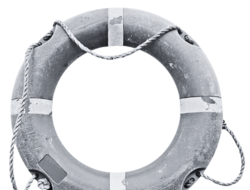Abuse has been, is or will be a part of life for more people than not. What is it, and what different kinds of abuse are there? How do you tell the difference between someone or a relationship just being crummy and abuse? How do you protect yourself or get away from abuse? How can you heal? How do you make sure that you aren’t abusive? This section answers these kinds of questions and concerns.
Abuse

Highlighted content
Hi. First of all, thank you guys so much for being here; I've used so many of your resources before and found them so valuable, I really appreciate you <3 I am a college student who has had sex with...
Sex after rape. Where do I begin?
- Heather Corinna
- Caitlyn Tivy PT, DPT, OCS
The last installment in a series on the physical effects of sexual trauma. To conclude the series, we’re talking about talking: namely, how to talk with sexual partners about any physical effects that you have experienced as a survivor of sexual trauma.
- Caitlyn Tivy PT, DPT, OCS
In this third installment of this series, we hear from a survivor who developed substantial physical concerns after her trauma experiences. Kayla* is a survivor of multiple episodes of sexual trauma, and she has undergone extensive care for her post-traumatic symptoms.
- Caitlyn Tivy PT, DPT, OCS
This article -- part two of a four part series on the physical effects of sexual trauma -- focuses on treatment options for pelvic effects that survivors may experience. For survivors struggling with pelvic symptoms, pelvic physical therapy can be an invaluable component of a recovery journey.
- Caitlyn Tivy PT, DPT, OCS
In this first of a four-article series, you can learn about the specifically physical patterns that pelvic health physical therapist and health writer Caitlyn and others observe in survivors of sexual trauma, and what the research shows about some of sexual trauma's long-term effects.
- Grace Catan
Grace is a survivor who has something to ask of you: she's asking you not to spend time with people who have abused me or any other survivor you know. And she's also telling you quite a lot about why.
- Grace Catan
Intellectually, I understand that success and safety do not invalidate struggle. I understand that I will feel the impacts of sexual violence regardless of how well I do in school or how much better life gets for me. But because a majority of people in my life only see the “successful” parts and not the difficult parts, and because so often people’s expectations of survivors stand counter to this, many people find it harder to believe that I’ve even experienced sexual violence. And that can make it harder for me and other survivors to emotionally feel and believe what we intellectually understand: our success does not invalidate our struggle.
- Gabriel Leão
"Folks, the main thing I hope to realize is that you are a very powerful social creator, no part of human culture exists without humans creating it and you literally have the power to do that. Of course, you don’t have all the power, but listen: power is not just out there in some kind of blob form, power is inside of everyone of us. We don’t have all the power but we have our power and we can decide how to use it."
- Julia Métraux
As long as rape culture exists, it may be impossible to create perfect survivor-focused policies. However, unlike with Title IX, Canada should create federal policies that prioritize on making sure campus is a safer place for survivors, rather than questioning their experiences.
- Heather Corinna
Hey there, lost. I'm so sorry that you had to experience that abuse, but I'm very glad you survived it, and have started to be able to look towards healthy, wanted intimacy in your future. Let's see if I can help get you started. First, I want to alleviate a fear that could get in your way. You don...
- Sam Wall
I wish I could find out who is spreading the idea that thinking about sex often, masturbating fruequently, or using sexual media indicates someone is on a path towards "sex addiction." You're far from the first person to ask about it in our direct services. I'd like to have some harsh words with...


